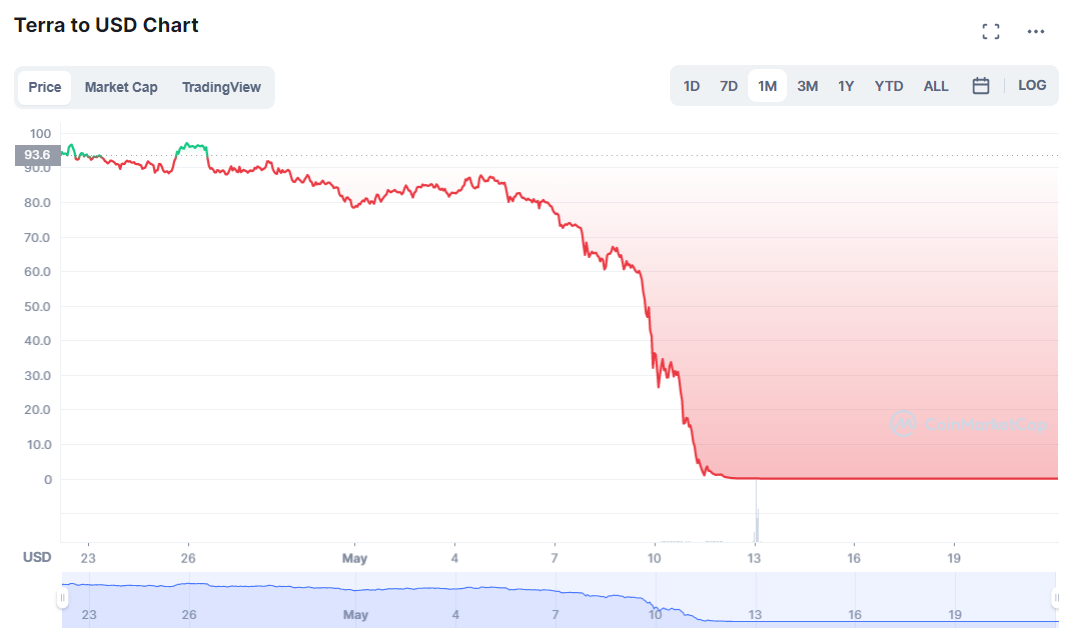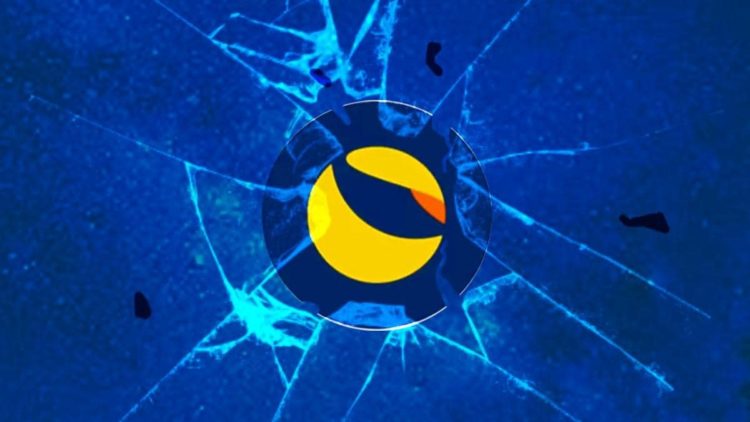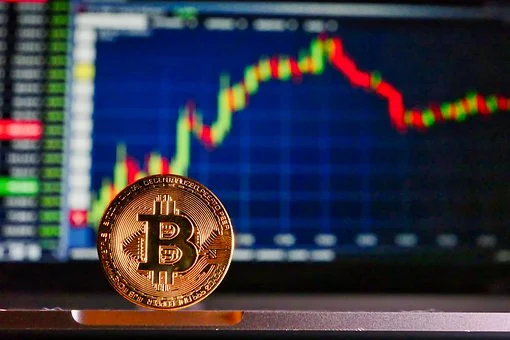This month, investors witnessed one of the most dramatic crashes a cryptocurrency has ever encountered. LUNA, the native token of the Terra ecosystem, crashed from literal three digits in price to hitting several zeros after the decimal in a matter of days.
This crash didn’t affect the LUNA price solely but it shook entire crypto markets. Bitcoin, for example, touched a bottom of $26,350.49. The last time Bitcoin saw this number was about 9 months ago.
Although the crash is suggested to be the massive $285 million UST dump, many other reasons raise speculations- most theoretical. Follow along as we explore LUNA in detail and understand how the Crash took place.
What is Terra LUNA?
Terra LUNA is a blockchain protocol that holds an ecosystem upon which users can mint and trade algorithmic stable coins. These stable coins operate in correlation with any fiat of their choosing. As of now, the network holds two native cryptocurrencies: LUNA and Terra.
The Terra stable coin can be pegged to any fiat; the TerraUST is pegged to the US dollar, while the TerraKRW is pegged to the South Korean Won. Terra LUNA, on the other hand, is a governance token that grants users authority -through voting- over the Terra protocol. LUNA can be used to mint UST- explained briefly in the latter part of the article.
The important distinction to be made here is that these stable coins aren’t backed by any fiat, but rather they derive their value from one. The algorithmic stable coin is not an asset in itself but derives value by following a set of rules.
The trading volume of Terra is maintained by leveraging arbitrage trading activity that reduces price volatility. In total, there are 3 ways in which the stakers of LUNA are compensated. They are- Gas fees, Transaction fees and Seigniorage (a mechanism that generates rewards for validators).
The goal of Terra is to transform the digital payment infrastructure and replace the traditional banking ecosystem by encouraging the mass adoption of stable coins.
Terra ecosystem was built by Terraform Labs in 2018. Do Kwon and Daniel Shin were the initial co-founders of the project. Do Kwon is an engineer and the current CEO of Terra.
Buy Terra LUNA Now
Your capital is at risk.
The LUNA Crash
Before we understand the LUNA Crash, let’s first understand how stable coins work, precisely UST.
Terraform labs own two cryptocurrencies, Terra UST being the first- a stable coin and the second being the native token, LUNA. UST, the algorithmic stable coin, is linked to the US dollar and maintains a price of $1. Every time the price of UST goes below $1, a certain amount of LUNA is burnt for the price of UST to recover and vice-versa is done in case the price goes above $1. This way the stable coin maintains its price of $1.
Now that that’s clear, let’s understand how the crash occurred in the first place.
The crash was triggered by the liquidation of $285 million worth of UST, leading to the stable coin getting de-pegged and falling below its optimum level of $1. This led to the minting of Terra tokens which blew in volume beyond proportion. From a previous volume of 350 million tokens, the supply currently stands at 6.9 trillion.

Terra Luna Price Crash – via CoinMarketCap
To counteract the sudden fall in price, Terraform labs liquidated their entire Bitcoin holdings, 40,000 bitcoins to be precise, but that didn’t help much. The liquidation also led to the price of Bitcoin falling below $27,000 after a long time. The trading volume at the time of the crash peaked at 268 million.
Throughout the crash, the price of the LUNA token fell more than 99% 3 times, almost vaporizing the asset. The token traded at an ATH of $119 just last month. The price hovered around $80 before the crash and soon plummeted down to $0.00001675 in less than a week. As of today, the market cap is just below a billion, a fraction of its all-time high of 40 Billion.
Owing to the crash, many exchanges, including Binance and eToro delisted LUNA and UST to prevent traders from taking risky positions. This decision acted as a catalyst and accelerated the crash. As of today, however, eToro has relisted the token and it is currently trading at $0.00013. Other exchanges may soon join the boat as well.
While these events are considered to be the official reasons for the crash, many theories are surfacing the market that explains it otherwise. But because there is no way to prove their legitimacy, they shall remain unmentioned.
Read more:
Lucky Block – Our Recommended Crypto of 2022
- New Crypto Games Platform
- Featured in Forbes, Nasdaq.com, Yahoo Finance
- Worldwide Competitions with Play to Earn Rewards
- LBLOCK Token Up 1000%+ From Presale
- Listed on Pancakeswap, LBank
- Free Tickets to Jackpot Prize Draws for Holders
- Passive Income Rewards
- 10,000 NFTs Minted in 2022 – Now on NFTLaunchpad.com
- $1 Million NFT Jackpot in May 2022
Cryptoassets are a highly volatile unregulated investment product. No UK or EU investor protection.
Credit: Source link












































































































































